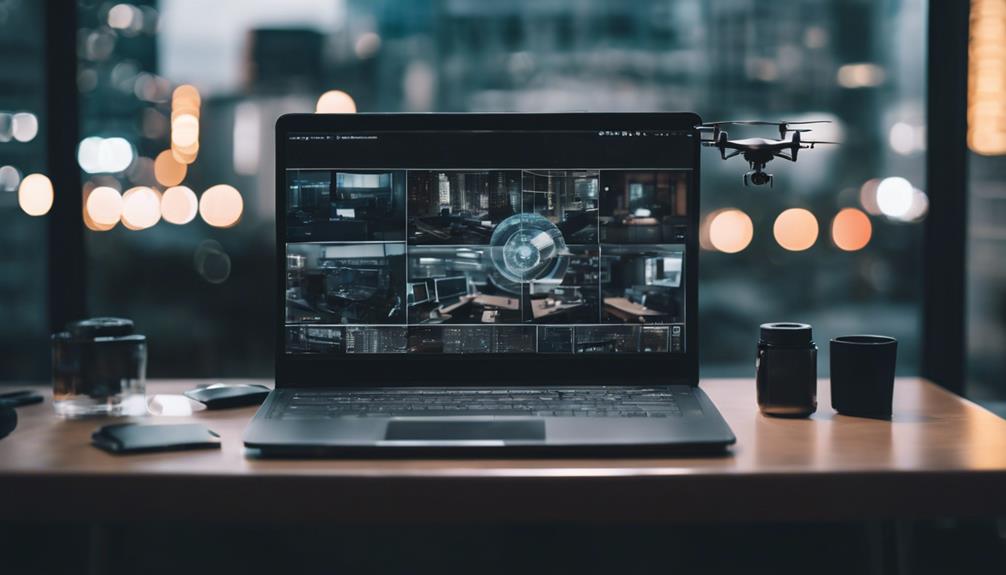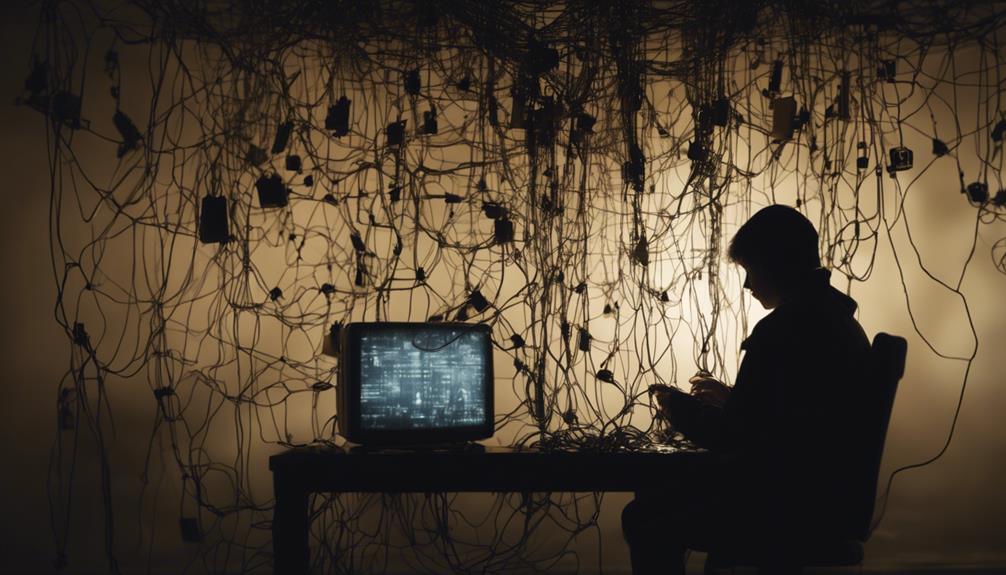
In today’s world, concerns about safety and security are paramount, leading many individuals to consider the use of spy cameras in their homes, especially in relation to their neighbors. While these devices can offer peace of mind, they also raise significant ethical and legal questions. Understanding the implications of using spy cameras in a neighborhood context is essential for maintaining a balance between security and personal privacy. This article explores the complexities associated with spy cameras and their impact on community dynamics.
Understanding the Rise of Spy Cameras Among Neighbors
The proliferation of affordable technology has made spy cameras more accessible than ever. With the ability to monitor activities in and around one’s home, many residents have turned to these devices in hopes of deterring crime and ensuring safety. Neighborhoods that experience higher rates of theft or vandalism often see a spike in the installation of surveillance cameras, as people look to protect their property and loved ones. This trend is further fueled by social media, where stories about neighborhood crime and safety concerns can rapidly circulate, prompting individuals to take action.
However, the rise of spy cameras among neighbors also reflects deeper societal anxieties. The perception of an increasingly dangerous world, combined with a desire for control and security, has led many to feel that constant monitoring is necessary. This mentality can create a cycle of surveillance, where one person installs a camera, prompting others to do the same, often leading to a neighborhood filled with watchful eyes—both virtual and physical. Understanding this dynamic is crucial in addressing the broader implications of such practices.
The Ethical Implications of Monitoring Your Neighbor
The ethical considerations surrounding the use of spy cameras are complex. On one hand, individuals have the right to protect their property and ensure their safety. On the other hand, such monitoring can infringe upon the privacy rights of neighbors. The act of surveilling others without their consent raises questions about respect, trust, and the potential for misuse of recorded footage. It is essential to recognize that while one may feel justified in monitoring their surroundings, their neighbors may see it as an invasion of their personal space.
Moreover, the ethical implications extend beyond individual interactions; they can affect the community as a whole. If residents feel they are being constantly watched, it can lead to an atmosphere of suspicion and discomfort. Ethical surveillance should prioritize transparency and consent, fostering an environment where community members discuss their concerns openly rather than resort to secretive measures. Ultimately, promoting ethical behavior in surveillance practices can help maintain healthy relationships among neighbors.
Legal Considerations for Using Spy Cameras at Home
Before installing a spy camera, it’s crucial to understand the legal framework governing their use. Laws regarding surveillance vary widely by location, and what may be permissible in one area could be illegal in another. Generally, it is legal to record video in public spaces without consent, as individuals do not have a reasonable expectation of privacy in those areas. However, recording audio without consent is often subject to stricter regulations, and many states have laws against it. Homeowners need to familiarize themselves with local regulations to avoid potential legal repercussions.
Additionally, the placement of cameras is a significant legal consideration. Cameras that capture footage of neighbors’ private property, such as their yards or windows, can lead to accusations of harassment or invasion of privacy. Even in public spaces, it’s important to respect the boundaries of others and to ensure that surveillance does not become a source of conflict. By adhering to legal guidelines, homeowners can protect themselves from legal disputes while also respecting their neighbors’ rights.
How Spy Cameras Can Impact Neighborhood Trust
The installation of spy cameras can have a profound impact on the level of trust within a neighborhood. Once a camera is installed, it can create an atmosphere of surveillance where neighbors may feel uneasy or suspect that they are being watched. This lack of trust can lead to an erosion of community bonds, as individuals may become more guarded and less willing to engage with one another. When neighbors view each other as potential threats rather than allies, community cohesion can suffer.
Conversely, some argue that the presence of spy cameras can enhance trust among neighbors by demonstrating a willingness to prioritize safety. When used transparently, cameras can serve as a deterrent to criminal activity, fostering a sense of security that encourages community engagement. However, for this positive effect to occur, it is essential that homeowners communicate openly about their intentions and the use of surveillance footage. Building a culture of trust requires collaboration and understanding among neighbors, rather than a unilateral decision to surveil.
The Fine Line Between Safety and Privacy Violations
Navigating the balance between safety and privacy is one of the most challenging aspects of using spy cameras. While the intention behind their installation is often to enhance personal safety, the reality is that these devices can easily cross into the realm of privacy violations. The fear of crime can lead individuals to justify invasive measures that ultimately ignore the rights of others. Finding this balance requires a nuanced understanding of the potential consequences of surveillance on both an individual and community level.
To maintain this balance, homeowners should consider the necessity and scope of surveillance. Questions such as whether a camera is truly needed, how much area it covers, and whether it infringes on the privacy of others are critical. Responsible use of cameras should not only focus on personal security but also honor the privacy and dignity of all community members. Engaging in open conversations with neighbors about safety concerns can often yield better results than resorting to hidden surveillance.
Choosing the Right Spy Camera for Your Needs
Selecting the appropriate spy camera for personal use involves evaluating several factors, including the intended purpose, the area being monitored, and the level of discretion required. Options range from discreet models that can be hidden in everyday objects to more visible cameras that serve as a deterrent. The choice ultimately depends on individual needs, whether for security against potential threats or simply monitoring pets or children.
Additionally, features such as video quality, connectivity options, and storage capabilities should be taken into account. Many modern cameras offer live streaming, smartphone alerts, and cloud storage, enhancing their functionality. However, it’s essential to consider how these features impact privacy. Choosing a camera that balances effectiveness with respect for privacy can help maintain positive relationships with neighbors while still fulfilling safety needs.
Best Practices for Responsible Camera Placement
When installing spy cameras, responsible placement is crucial to respecting neighbors’ privacy while still achieving personal security objectives. Cameras should be positioned in a way that focuses strictly on one’s own property, avoiding angles that might unintentionally capture the private areas of neighboring homes. This consideration is vital, as well-placed cameras can deter crime without infringing on others’ rights.
Moreover, clear signage indicating the presence of surveillance can foster transparency. Informing neighbors that monitoring is taking place not only promotes trust but also allows them to feel more secure, knowing that their privacy is respected. Establishing guidelines for responsible camera use can help create a communal understanding of boundaries, thus mitigating potential conflicts arising from surveillance practices.
Alternatives to Spy Cameras for Neighborhood Safety
While spy cameras can serve as a deterrent to crime, several alternative strategies exist to enhance neighborhood safety without encroaching on privacy. Community engagement initiatives, such as neighborhood watch programs, can create a collective sense of responsibility and vigilance. Encouraging communication among neighbors fosters relationships that can lead to shared safety efforts and mutual support.
Additionally, investing in proper lighting, maintaining properties, and cultivating a sense of community can significantly reduce crime rates. Alerting local law enforcement about suspicious activities and participating in community safety meetings can also be effective. These proactive measures prioritize collaboration and foster an environment where neighbors look out for one another, providing safer communities without resorting to intrusive surveillance.
Building a Community Based on Transparency and Trust
Creating a neighborhood culture rooted in transparency and trust is essential for fostering positive relationships among residents. Open communication about safety concerns and the intentions behind surveillance can help eliminate misunderstandings. Encouraging neighbors to share their thoughts on security measures—whether through community meetings or informal gatherings—can lead to collaborative solutions that everyone feels comfortable with.
Furthermore, promoting shared responsibilities, such as community patrols or localized safety initiatives, can strengthen bonds among residents. When people work together towards a common goal, they are more likely to develop trust and respect for one another. Building a community based on transparency not only enhances safety but also cultivates a supportive environment where individuals feel valued and respected.
In conclusion, the use of spy cameras among neighbors raises critical questions about safety, privacy, and community dynamics. While these devices can provide peace of mind, they must be deployed with caution and consideration for others. Striking a balance between surveillance and respect involves understanding legal frameworks, ethical implications, and the importance of open communication. By fostering a culture of transparency and collaboration, neighborhoods can enhance security while preserving the trust and privacy of all residents. Ultimately, the goal should be to create safe, vibrant communities where everyone feels secure and respected.




